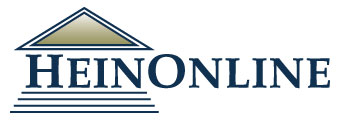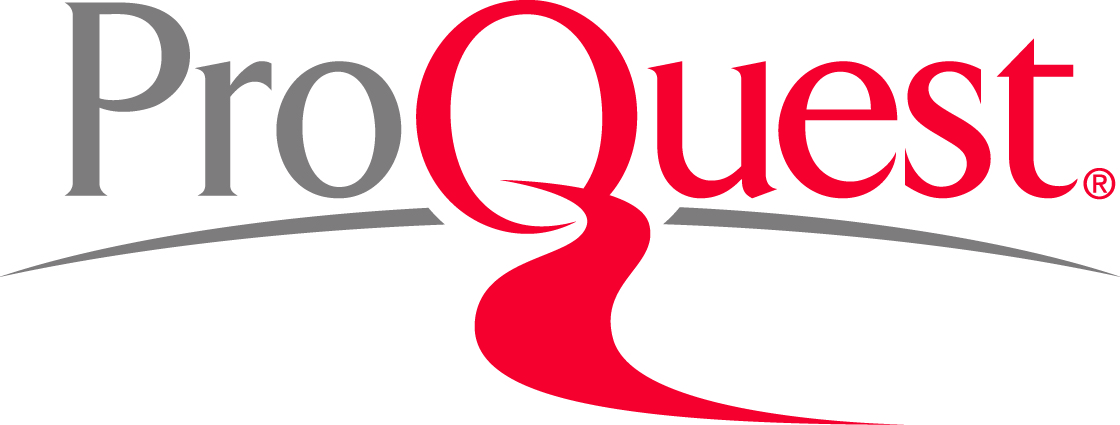Advancing Circular Economy: Czech perspective
Abstract
This article provides a comprehensive overview of the transition to a circular economy, focusing on the European Union’s (EU) efforts and the Czech Republic’s stance and actions. It elaborates on the urgent need to shift from a linear economy, which burdens Earth’s resources and leads to substantial waste, to a more sustainable circular economy by 2050. The circular economy paradigm is seen as a fundamental shift in managing waste and resource use towards maintaining the value of products and materials for as long as possible and minimising waste generation. The article outlines the EU’s initiatives, policies, and legislation to foster this transition, emphasising the critical role of member states in implementing specific measures. Several EU policies, like the Green Deal and the New Circular Economy Action Plan, aim to transform the economy from linear to circular, covering various waste streams and sectors. Particular attention is given to the Czech Republic’s position and efforts. It delves into Czech waste legislation, policies related to the circular economy, and the nation’s strategic documents like the State Environmental Policy 2030 and the Strategic Framework of the Circular Economy of the Czech Republic 2040; these aim to improve waste management, enhance material supply security, boost business competitiveness, and reduce fossil fuel consumption. The article also discusses the challenges and public opinion in the Czech Republic regarding environmental protection and the circular economy. Despite progress, factors such as inadequate use of economic instruments and public reluctance to pay more for sustainable products hinder a faster transition. Furthermore, the article reviews specific legal instruments, economic tools, and sectoral legislative acts contributing to circularity in the Czech Republic. In conclusion, while the Czech Republic and the EU have made strides towards a circular economy, the journey is ongoing. The transition promises long-term benefits like self-sufficiency, reduced greenhouse gases, and new job opportunities. The EU’s role is crucial in this transition, as it sets legislative and policy frameworks that guide member states towards circularity. This article reflects the complexities and multifaceted nature of transitioning to a circular economy, highlighting the need for continued efforts, policy alignment, and societal support.
References
Corvellec H, Stowell A & Johansson N. (2022) Critiques of the circular economy, J Ind Ecol 26, pp. 421–432, https://doi.org/10.1111/jiec.13187
Directorate-General for Environment (2023) Circular economy: Faster progress needed to meet EU resource-efficiency targets, ensure sustainable use of materials and enhance strategic autonomy, http://tinyurl.com/2h4z2sna [05.01.2024]
Eurobarometer (2020) Attitudes of Europeans towards the Environment: Summary, https://europa.eu/eurobarometer/surveys/detail/2257 [05.01.2024]
European Commission (2024a) Waste and Recycling, https://environment.ec.europa.eu/topics/waste-and-recycling_en [05.01.2024]
European Commission (2024b) Circular economy action plan, https://environment.ec.europa.eu/strategy/circular-economy-action-plan_en [05.01.2024]
European Commission (2015) Closing the loop: Commission adopts ambitious new Circular Economy Package to boost competitiveness, create jobs and generate sustainable growth, https://ec.europa.eu/commission/presscorner/detail/en/IP_15_6203 [05.01.2024]
European Commission (2020) Green Deal: Commission adopts new Chemicals Strategy towards a toxic-free environment, https://ec.europa.eu/commission/presscorner/detail/en/ip_20_1839 [05.01.2024]
European Commission (2021a) European Green Deal: Commission aims for zero pollution in air, water and soil. Press release, https://ec.europa.eu/commission/presscorner/detail/en/ip_21_2345 [05.01.2024]
European Commission (2021b) European Green Deal: Developing a sustainable blue economy in the European Union. Press release. European Commission, https://ec.europa.eu/commission/presscorner/detail/en/ip_21_2341 [05.01.2024]
European Parliament (2021) How the EU wants to achieve a circular economy by 2050, http://tinyurl.com/4hwka7zf [05.01.2024]
Hartley, van Santen H & Kircherr (2020) Policies for transitioning towards a circular economy: Expectations from the European Union (EU), Resources, Conservation and Recycling, 155(104634), https://doi.org/10.1016/j.resconrec.2019.104634
Hervey G (2018) Ranking how EU countries do with the circular economy, https://www.politico.eu/article/ranking-how-eu-countries-do-with-the-circular-economy/ [05.01.2024]
Hornyák Zs & Lindl R (2023) Liability rules protecting waste management in the light of the right to a healthy environment, Journal of Agricultural and Environmental Law 35(18), pp. 31–48, https://doi.org/10.21029/JAEL.2023.35.31
Jančářová et al. (2015) Waste Management, Právo životního prostředí: zvláštní část, pp. 450–476.
Langlet D & Mahmoudi S (2016) Waste, EU Environmental Law and Policy, pp. 283–308.
Ledwoń P (2023) The National Raw Materials Policy in Poland as an instrument of implementation of the constitutional principle of ensuring the security of citizens (Article 5 of the Constitution of the Republic of Poland), Journal of Agricultural and Environmental Law 35(18), pp. 100–114, https://doi.org/10.21029/JAEL.2023.35.100
Louis L (2024) Fast fashion: France seeks to slow down wasteful industry, https://tinyurl.com/6dcrvh7r [05.01.2024]
Ministry of the Environment (2014) Waste Management Plan of the Czech Republic for the period 2015–2024, http://tinyurl.com/5yk2ds4r [05.01.2024]
Ministry for the Environment (2018) Methodological instructions of the Waste Department of the Ministry of the Environment for the management of construction and demolition waste for the management and disposal of demolition waste, http://tinyurl.com/mr3h62xk [05.01.2024]
Ministry of the Environment (2021a) Strategic Framework of the Circular Economy of the Czech Republic 2040, http://tinyurl.com/2s3ae8xw [05.01.2024]
Ministry of the Environment (2021b) The State Environmental Policy 2030, with outlook to 2050. Ministry of the Environment, http://tinyurl.com/ydd84xas [05.01.2024]
Ministry of the Environment (2022) Action Plan Circular Czech Republic 2040 for the period 2022-2027. Ministry of the Environment, http://tinyurl.com/yc5u5skd [05.01.2024]
Ministry of Industry and Trade (2017) New Raw Materials Policy in the field of minerals and their resources - MIT 2017, http://tinyurl.com/yjmephd5 [05.01.2024]
Ministry of Industry and Trade (2019) Secondary Raw Materials Policy of the Czech Republic for the period 2019–2022, http://tinyurl.com/54c9ah89 [05.01.2024]
Richardson K et al. (2023) Earth beyond six of nine planetary boundaries, Sci Adv 9(2458), pp.1–16, https://doi.org/10.1126/sciadv.adh2458
OECD (2021) Towards a national strategic framework for the circular economy in the Czech Republic, Environment Policy Papers 27, https://doi.org/10.1787/5d33734d-en
Olajos I (2016) The legal problems related to re-use of metallic waste, Journal of Agricultural and Environmental Law 20(11), pp. 91–102. https://10.21029/JAEL.2016.20.91
Simkova A (2018) Construction Products from Deconstructed Buildings in Accordance with the 7th Basic Requirement, Construction Magazine. Information Centre CKAIT s.r.o., 8(12), 48–52.
Skopan M (2018) The Recycling of Building Materials and their Reuse, Construction Magazine. Information Centre CKAIT s.r.o., 8(12), pp. 44–47.
Snopková T Müllerová (2022) Circular Economy, Climate Law, pp. 543–567.
Stem (2022) Price is the most important factor for Czechs when choosing clothes, the younger generation is more committed to consumer responsibility, http://tinyurl.com/392sm5av [05.01.2024]
Stem (2021) Divided by freedom - climate change, https://www.stem.cz/rozdeleni-svobodou-klimaticka-zmena/ [05.01.2024]
Stem (2020a) Assessment of the state of the environment in the Czech Republic in the opinion of the Czech public, http://tinyurl.com/4erxyzbu [05.01.2024]
Stem (2020b) Czechs are concerned about climate change and support carbon neutrality. But they fear the impact on the Czech economy, http://tinyurl.com/k93amu4w [05.01.2024]
The National Programme Environment (2024) https://www.narodniprogramzp.cz/about-the-national-programme-environment/ [05.01.2024]
The Office of the Government (2016) Strategic Framework Czech Republic 2030, http://tinyurl.com/57wuttys [05.01.2024]
The Office of the Government (2022) Processing of outputs of the Czech public in the framework of Conference on the Future of Europe following the reflection on its themes - summary of the project results, http://tinyurl.com/3z976vvr [05.01.2024]
The Supreme Audit Office (2022) Waste management in the Czech Republic: subsidies in billions of CZK did not effect a change, landfilling still plays a crucial role, http://tinyurl.com/yntwpw2j [05.01.2024]
Vehlow, Bergfeldt, Visser & Wilén (2007). European Union waste management strategy and the importance of biogenic waste, Journal of Material Cycles and Waste Management 9(2), pp. 130–139. https://10.1007/S10163-007-0178-9
Vomáčka V (2019) Case Law of the Supreme Administrative Court of the Czech Republic: Inspections in the Waste Management, Soudní rozhledy 1, pp. 2–6.












